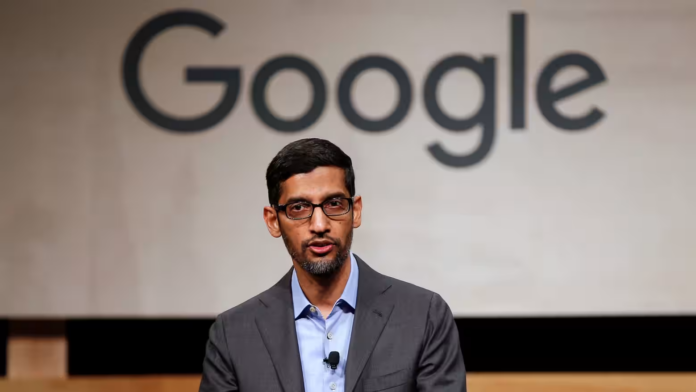Google’s CEO Sundar Pichai testified on Wednesday at a trial in Washington, warning that the company would be discouraged from investing in search engine technology if antitrust enforcers succeed in their efforts to force Google to share data with rivals.
Pichai’s testimony came as Alphabet, the parent company of Google, defends itself against proposals from the U.S. Department of Justice (DOJ), which include selling its Chrome web browser to boost competition among online search providers.
Pichai described the provisions requiring Google to share its search index and search query data as “extraordinary,” arguing that they would effectively result in a “de facto divestiture of our IP related to search.” He added, “It would be trivial to reverse engineer and effectively build Google search from the outside,” making it “unviable to invest in R&D the way we have for the past two decades.”
The trial could have a major impact on the future of the internet, potentially reshaping the online search landscape and undermining Google’s dominance as the leading search engine. The DOJ, alongside a coalition of state attorneys general, is seeking remedies to restore competition in the search market, particularly as the sector increasingly overlaps with generative AI products such as ChatGPT.
Prosecutors are concerned that Google’s stronghold on search could extend to AI technologies.
U.S. District Judge Amit Mehta ruled last year that Google “has no true competitor,” noting that the company has maintained its dominance partly through paying billions of dollars to companies like Apple, Samsung, AT&T, and Verizon to be the default search engine on their mobile devices. The DOJ is pushing for an end to these payments and demands that Google share search data with competitors.
Google argues that these proposals would give away its proprietary work and compromise user privacy while also threatening smaller companies such as Mozilla, the maker of the Firefox browser, which depends on Google for revenue. In response to the concerns, Google has loosened its agreements to allow device makers and carriers to pre-install other search and AI apps.
The company has indicated it plans to appeal once a final ruling is made by the judge.























